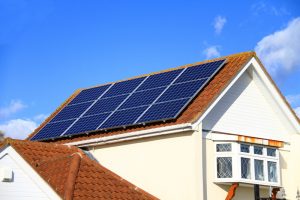In the pursuit of energy efficiency and sustainability, integrating solar panel systems with HVAC technology is becoming increasingly popular. This combination not only reduces your carbon footprint but also offers significant cost savings. Solar installers are well-equipped to help homeowners and businesses harness the power of the sun to optimize their HVAC systems.
Understanding Solar Panel Systems
Solar panels convert sunlight into electricity through photovoltaic cells. This electricity can be used to power various household appliances, including HVAC systems. Solar energy is renewable, abundant, and eco-friendly, making it an excellent alternative to traditional energy sources.
Benefits of Combining Solar Panels with HVAC Systems
- Cost Savings: One of the primary advantages of this combination is the reduction in energy bills. By generating your electricity, you rely less on the grid, leading to substantial savings over time.
- Environmental Impact: By using solar power to run your HVAC system, you reduce greenhouse gas emissions and your carbon footprint.
- Energy Independence: With solar panels, you become less dependent on external energy sources. This independence can be particularly beneficial during power outages or energy price hikes.
- Increased Property Value: Homes equipped with solar panel systems and energy-efficient HVAC technology often have higher market values. This investment can pay off if you decide to sell your property.
Choosing the Right Solar Panel System
Consider these when thinking about solar panel systems:
- Energy Needs: Assess your household’s energy consumption to determine the size and capacity of the solar panel system required.
- Roof Space and Orientation: Ensure you have enough roof space with optimal orientation toward the sun. South-facing roofs with a tilt angle equal to your latitude generally provide the best performance.
- Budget: While solar panels have a high upfront cost, various incentives, tax credits, and financing options can make them more affordable.
- Compatibility with HVAC System: Not all HVAC systems are created equal. Some are more compatible with solar power than others. Consult with HVAC professionals and solar installers to ensure compatibility and optimal performance.
Installation Process
Installing a solar panel system involves several steps:
- Site Assessment: A professional solar installer will evaluate your property to determine the best location for the panels.
- System Design: Based on the assessment, the installer will design a system tailored to your energy needs and roof specifications.
- Permits and Approvals: The installer will handle necessary permits and approvals from local authorities.
- Installation: Once approved, the installation process can begin, which typically takes a few days.
- Inspection and Activation: The system will then be inspected and activated to start generating electricity.
Maintenance and Monitoring
Solar panels require minimal maintenance, primarily periodic cleaning—although rain will do most of the job. Many systems come with monitoring software that allows you to track energy production and usage in real-time.
With the help of professional solar installers in Plymouth, IN, you can make this transition smoothly and efficiently. Embrace the power of the sun and enjoy the benefits of a greener, more energy-efficient home!
When in doubt, just contact Collier’s Heating & Air Conditioning. Colliers—A company you’ve grown to trust.

